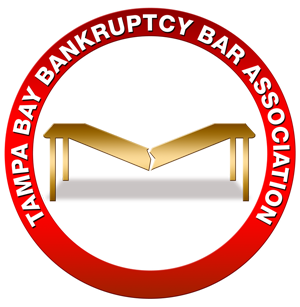By Kristina E. Feher, Esq.
Feher Law, PLLC
Introduction On April 29, 2021, the Florida Supreme Court entered its opinion regarding the amended Florida Rule of Civil Procedure 1.510 and “align[ed] Florida’s summary judgment standard with that of the federal courts and the supermajority of states that have already adopted the federal summary judgment standard.” In re Amends. to Fla. Rule of Civ. Pro. 1.510, 309 So. 3d 192, 192 (Fla. 2020) (per curiam) (Labarga, J., dissenting). The amendments adopted essentially replace Fla. R. Civ. P. 1.510 with the text of Federal Rule of Civil Procedure 56. The Florida Supreme Court adopted the federal summary judgment standard as articulated in Celotex Corp. v. Catrett, 477 U.S. 317 (1986). The Florida Supreme Court stated that textual overlap “between the Florida and federal rules will provide greater certainty and eliminate unproductive speculation and litigation over differences between those rules. And Florida litigants and judges will get the full benefit
of the large body of case law interpreting and applying federal rule 56.”
Prior Standard
The Florida Supreme Court addressed three key points and substantive changes in applying the new rule. First, those applying new rule 1.510 must recognize the fundamental similarity between the summary judgment standard and the directed verdict standard. Anderson v. Liberty Lobby, Inc., 477 U.S. 242, 251 251 (noting that “the inquiry under each is the same”). Both standards focus on “whether the evidence presents a sufficient disagreement to require submission to a jury.” Id., at 251-52.
Second, those applying new rule 1.510 must recognize that a moving party that does not bear the burden of persuasion at trial can obtain summary judgment without disproving the nonmovant’s case. Under Celotex and therefore under the new rule, such a movant can satisfy its initial burden of production in one of two ways: “[I]f the nonmoving party must prove X to prevail [at trial], the moving party at summary judgment can either produce evidence that X is not so or point out that the nonmoving party lacks the evidence to prove X.” Bedford v. Doe, 880 F.3d 993, 996-97 (8th Cir. 2018). “A movant for summary judgment need not set forth evidence when the nonmovant bears the burden of persuasion at trial.” Wease v. Ocwen Loan Servicing, L.L.C., 915 F.3d 98 , 997 (5th Cir. 2019).
Finally, those applying new rule 1.510 must recognize that the correct test for the existence of a genuine factual dispute is whether “the evidence is such that a reasonable jury could
return a verdict for the nonmoving party.” Anderson, 477 U.S. at 248.
New Standard
Where federal rule 56(a) says that the court should state on the record its reasons for granting or denying a summary judgment motion, new rule 1.510(a) says that the court shall do so (emphasis added). The wording of the new rule makes clear that the court’s obligation in this regard is mandatory. To comply with this requirement, it will not be enough for the court to make a conclusory statement that there is or is not a genuine dispute as to a material fact. The court must state the reasons for its decision with enough specificity to provide useful guidance to the parties and, if necessary, to allow for appellate review. On a systemic level, we agree with the commenters who said that this requirement is critical to ensuring that Florida courts embrace the federal summary judgment standard in practice and not just on paper.
New rule 1.510 therefore says that a summary judgment motion must be filed at least 40 days before the time fixed for a hearing. The new rule further says that the nonmovant
must respond with its supporting factual position at least 20 days before the hearing. The new rule 1.510 went into effect on May 1, 2021. This means that the new rule governs the
adjudication of any summary judgment motion decided on or after that date, including in pending cases. Cf. Love v. State, 286 So. 3d 177, 187-88 (Fla. 2019).
Conclusion
The Florida Supreme Court’s notes on the 2021 amendment stated that “[t]he rule is amended to adopt almost all the text of Federal Rule of Civil Procedure 56. The “federal summary judgment standard” refers to the principles announced in Celotex Corp. v. Catrett, 477 U.S. 317 (1986), Anderson v. Liberty Lobby, Inc., 477 U.S. 242 (1986), and Matsushita Electric Industrial Co. v. Zenith Radio Corp., 475 U.S. 574 (1986), and more generally to case law interpreting Federal Rule of Civil Procedure 56. Now that the state court and federal standards are aligned, the expectation of a faster resolution for cases seems possible. The Florida Supreme Court believes the new rule will also reduce gamesmanship and surprise, which in turn would allow for more deliberative considerations of summary judgment motions.

